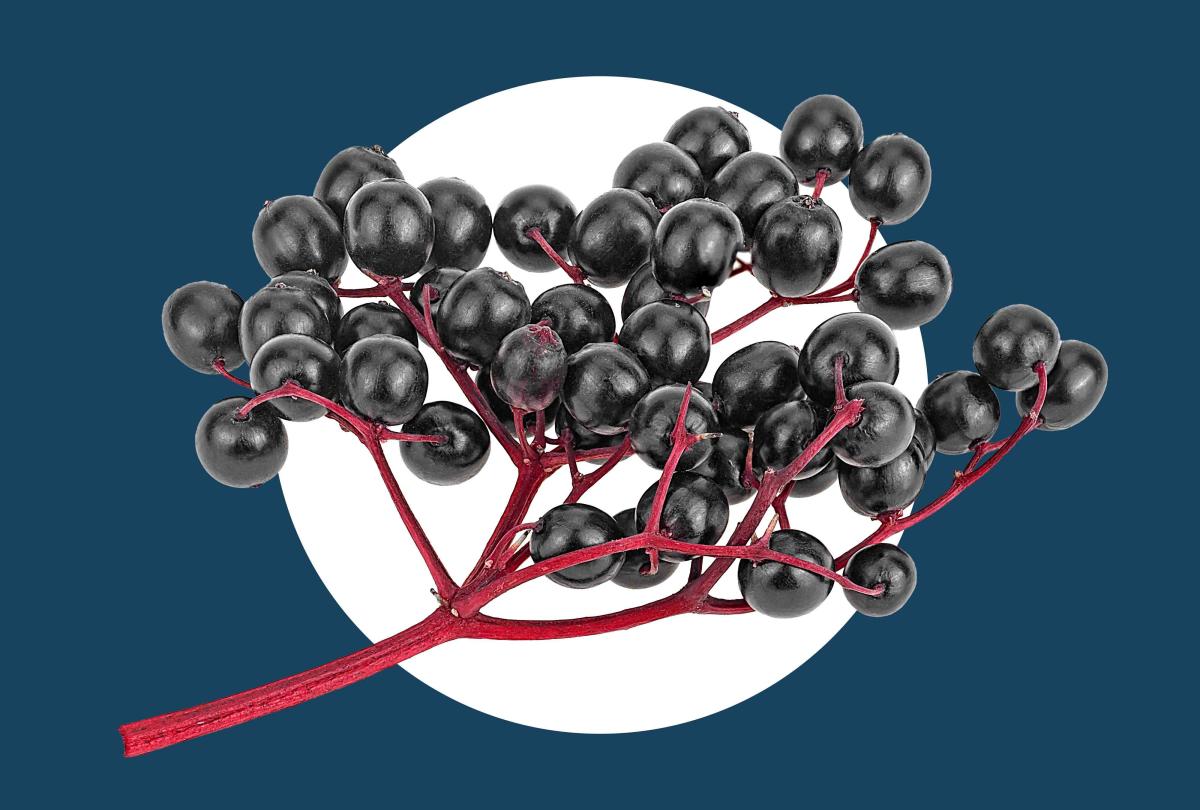
Have you ever felt like everyone around you is under the weather in February? You’re not alone in this observation. Research from the Centers for Disease Control reveals that February has been the peak month for flu cases for over four decades. Similarly, the common cold surge typically occurs from December through February.
If you’re concerned about falling ill this season or are seeking ways to bolster your health, you may have stumbled upon the popular remedy known as elderberry on social media. This vibrant blue-purple fruit has a rich history in herbal medicine, having been utilized for centuries, and is now gaining attention for its applications in home remedies.
Social media influencers frequently post videos demonstrating how to prepare elderberry drinks and gummies, claiming these concoctions can help prevent or alleviate cold and flu symptoms. However, it’s essential to exercise caution and not rely solely on online advice for health matters—so what do experts and research say about this popular home remedy?
Is It Safe to Consume Elderberries?
Elderberry comes with several important considerations. It’s crucial to understand that most parts of the elderberry plant, such as the stems, leaves, seeds, and roots, are toxic due to the presence of cyanogenic glycosides, which can release cyanide upon digestion. Only the flowers and berries of elderberry plants are safe to eat. The flowers can be consumed raw or brewed into a delightful tea, but the fruit must be cooked before consumption.
Even after cooking, health experts generally advise that pregnant individuals should avoid elderberry, as there isn’t sufficient research confirming its safety for them.
Cooking effectively breaks down the glycosides in elderberry seeds, making them safe to consume. To ensure complete safety, it’s advisable to purchase pre-packaged elderberries and adhere to cooking instructions. Look for black elderberries (Sambucus nigra), as they are known for their high antioxidant content and documented safety, while other varieties like red elderberries may pose additional risks even when cooked.
Can Elderberries Help Prevent Colds or the Flu?
The antioxidant properties of elderberries might explain their popularity as a support for immune health. Black elderberries, known for their rich anthocyanin content, can enhance overall wellness. According to the Cleveland Clinic, anthocyanins possess robust antioxidant effects, which are often associated with immune support, thereby leading to the assumption that elderberries could help ward off illnesses.
A handful of studies have explored the potential of elderberries to either prevent viral infections or diminish their duration, yielding mixed results. A 2019 meta-analysis published in the journal “Complementary Theories in Medicine” suggested that standardized elderberry extracts can significantly decrease the duration and severity of upper respiratory symptoms compared to a placebo. It indicated that elderberry could serve as a safer alternative to conventional medications for common colds and flu cases.

Food & Wine / Getty Images
Elderberries have antioxidant properties due to their anthocyanin content.
Nonetheless, not all studies regarding the medicinal potential of elderberries have produced definitive outcomes. It’s important to note that this meta-analysis concentrated on the fruit’s ability to alleviate symptoms, not on its potential to prevent viral infections.
A different systematic review from 2021, published by the open-access journal BMC Complementary Medicine and Theories, aimed to evaluate both the benefits and risks of elderberry for preventing and treating viral respiratory infections. The findings indicated that “Elderberry may be a safe option for treating viral respiratory illnesses, with no evidence suggesting it overstimulates the immune system.”
While some evidence suggests elderberry might alleviate symptoms of viral illnesses, there isn’t enough research to confirm that it will prevent the onset of colds or flu. More extensive studies are necessary to fully understand the effects of elderberry consumption in viral infection treatment.
Kristen Carli, MS, RD, and owner of Camelback Nutrition and Wellness, emphasizes the existing yet limited research on elderberry, noting, “Evidence seems to suggest that elderberry (whether in extract or supplement form) can help combat the flu virus and alleviate symptoms like congestion and cough.”
Dr. James DiNicolantonio, a pharmacy expert and cardiovascular research scientist, points out, “Clinical studies show that elderberry extracts standardized to a certain anthocyanin concentration may reduce the duration of flu and cold symptoms by approximately two to four days.”
A recurring theme in discussions regarding elderberry’s potential benefits is the word “suggest.” Many studies propose that elderberries could potentially shorten the duration of illness, but the current body of research does not provide a solid foundation for definitive conclusions. If you choose to try elderberry extract for your flu, just ensure you comply with the appropriate safety measures regarding the consumption of the fruit and flowers.
Recommended Ways to Consume Elderberries
Numerous videos on social media showcase users crafting elderberry syrups and gummies. If you opt for a recipe that requires thorough cooking of the berries, these preparations are generally considered safe, although be aware they could still contain trace amounts of cyanide and should not be consumed daily.
Moreover, homemade elderberry drinks might lack a sufficient concentration of the beneficial anthocyanins. Dr. DiNicolantonio advises that if you’re preparing elderberry syrup for mixing into a beverage, it might not deliver a therapeutic dose unless it contains the requisite amount of anthocyanins.
Related: Discover Nordic Berries: Antioxidant-Rich Superfoods with a Rich History
Carli recommends that while drinks made with elderberry syrup may offer some health benefits, their effectiveness depends on the concentration of the extract used and stresses that there is no established dosage for elderberry. Always follow the manufacturer’s guidelines regarding dosage.
To guarantee safety and clarity on elderberry consumption, consider opting for commercially prepared supplements or syrups. These products typically provide comprehensive instructions on recommended dosing and safety measures, including whether they are suitable for children. Additionally, feel free to explore creative ways to utilize commercially available elderberry syrup without missing out on the fun.
Elderberry can interact with certain medications; therefore, consult your healthcare provider before adding elderberry products to your routine if you are currently prescribed medications.
Read the full article on Food & Wine









